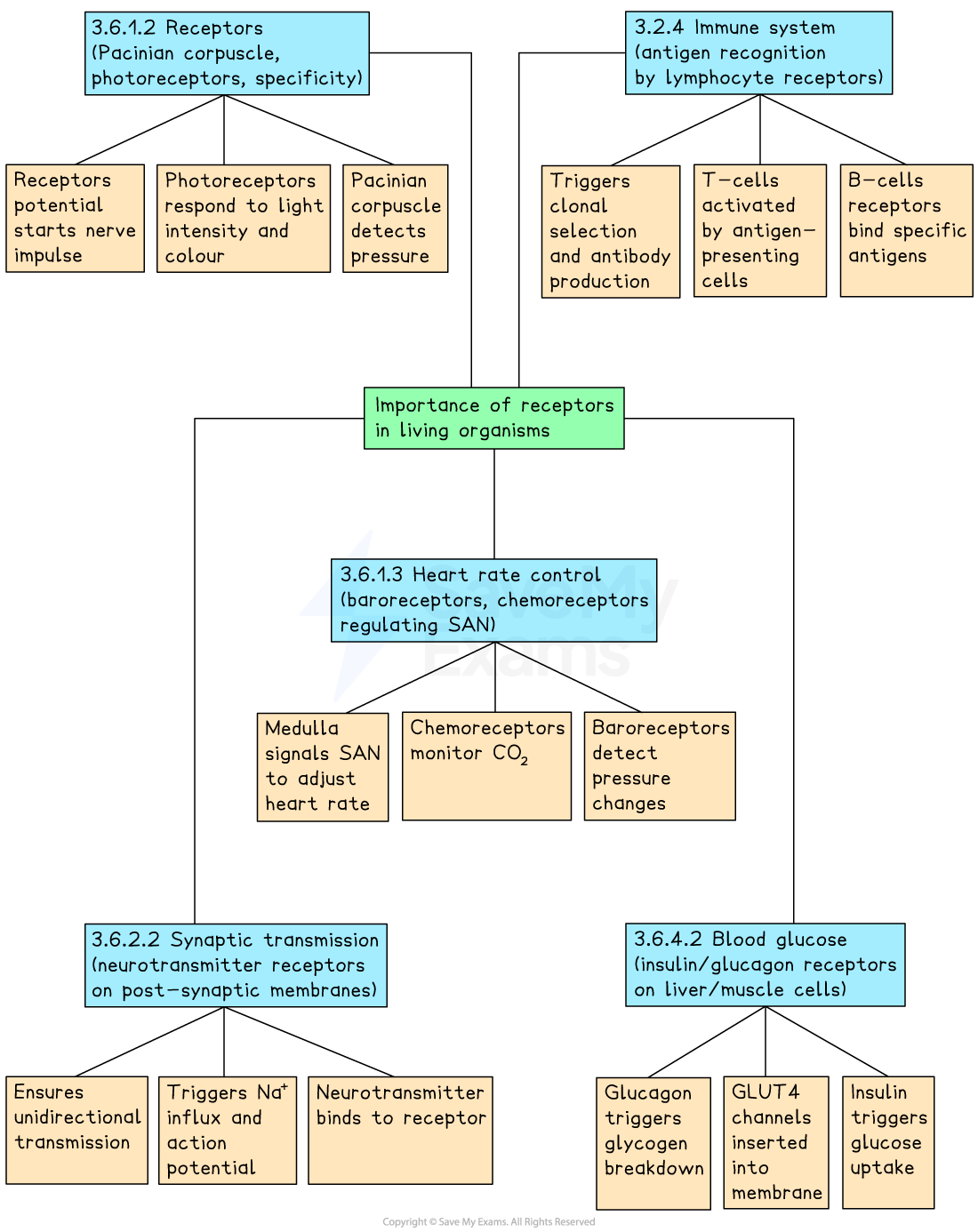How to plan and structure your essay (AQA A Level Biology): Revision Note
Exam code: 7402
Planning your essay
You should aim to spend
5–10 minutes planning your essay
around 40 minutes writing your essay
Aim to choose at least 4 different topics from across the specification that are relevant to the theme of the question
Including 5 topics is an even better way to show breadth of knowledge
Your essay plan should allow you to organise your ideas clearly, but also be concise and quick to produce
For example:
concept maps are visual diagrams with branches linking key ideas to the essay theme
E.g. a spider diagram or mind map places the essay title in the centre and branch out with topic headings, keywords, and examples
bullet-point lists can use subtitles from each of the chosen 4–5 topic areas, with 1–2 key points or examples under each title
a table can contain columns for topic title, key concepts and links to the title
Example: planning with a concept map
A concept map plan could be produced as follows:
read and understand the theme of the question
consider the course as a whole and list all possible linked topics
write the title of your essay in the centre of a blank space on your paper
choose 4–6 topics from your list and add a branch to your central title for each topic
add another set of branches to each topic to note specific examples and key ideas to include within your paragraphs

Examiner Tips and Tricks
Practise producing concept maps using previous essay titles from AQA exam papers. This will help you to consolidate your understanding of the course and build confidence in drawing connections between different topics.
Writing your essay
Essay structure and content
Aim to produce 4-5 well-developed paragraphs; one for each topic area in your essay
Ideally, choose topics from different parts of the course to demonstrate breadth of knowledge
Each paragraph should:
introduce a relevant biological concept
provide a detailed explanation of the concept that uses accurate terminology
This must be at A level standard; GCSE-level content will receive less credit
Spelling doesn’t need to be perfect everywhere, but key terms must be clearly identifiable
link the concept clearly back to the essay theme
include specific examples
You can ensure that each paragraph answers the question directly by:
referring to the title explicitly in the first sentence
using linking statements to explain why the concept that you’re describing is important in the overall context of the essay, e.g.:
“This demonstrates the importance of…”
“This contributes to the organism’s ability to…”
How to achieve top-band marks
To reach the very top bands of the mark scheme you need to show:
accurate knowledge at A level standard
broad knowledge across the A level specification
knowledge beyond the specification
This shows the examiner that you’ve developed a deeper understanding of biology and made connections beyond the classroom
Examples of materials that extend beyond the specification include:
case studies
E.g. how the structure of viral receptors influences hosts in SARS-CoV-2
named examples that are not explicitly mentioned in the spec
E.g. diseases, organisms, or enzymes
current developments in science
E.g. CRISPR-Cas9 when discussing gene expression or receptors
Sources of content that extends beyond the specification include:
textbooks, e.g. in a 'did you know?' or a 'spec+' box
news articles about current scientific breakthroughs
science documentaries
science content creators on social media
Examiner Tips and Tricks
Use your plan to stay focused and stick to relevant material
Explain ideas accurately in full A-level depth and using correct scientific terminology
Breadth of knowledge is crucial, so avoid spending too long writing about one topic in detail at the expense of others

Unlock more, it's free!
Was this revision note helpful?
